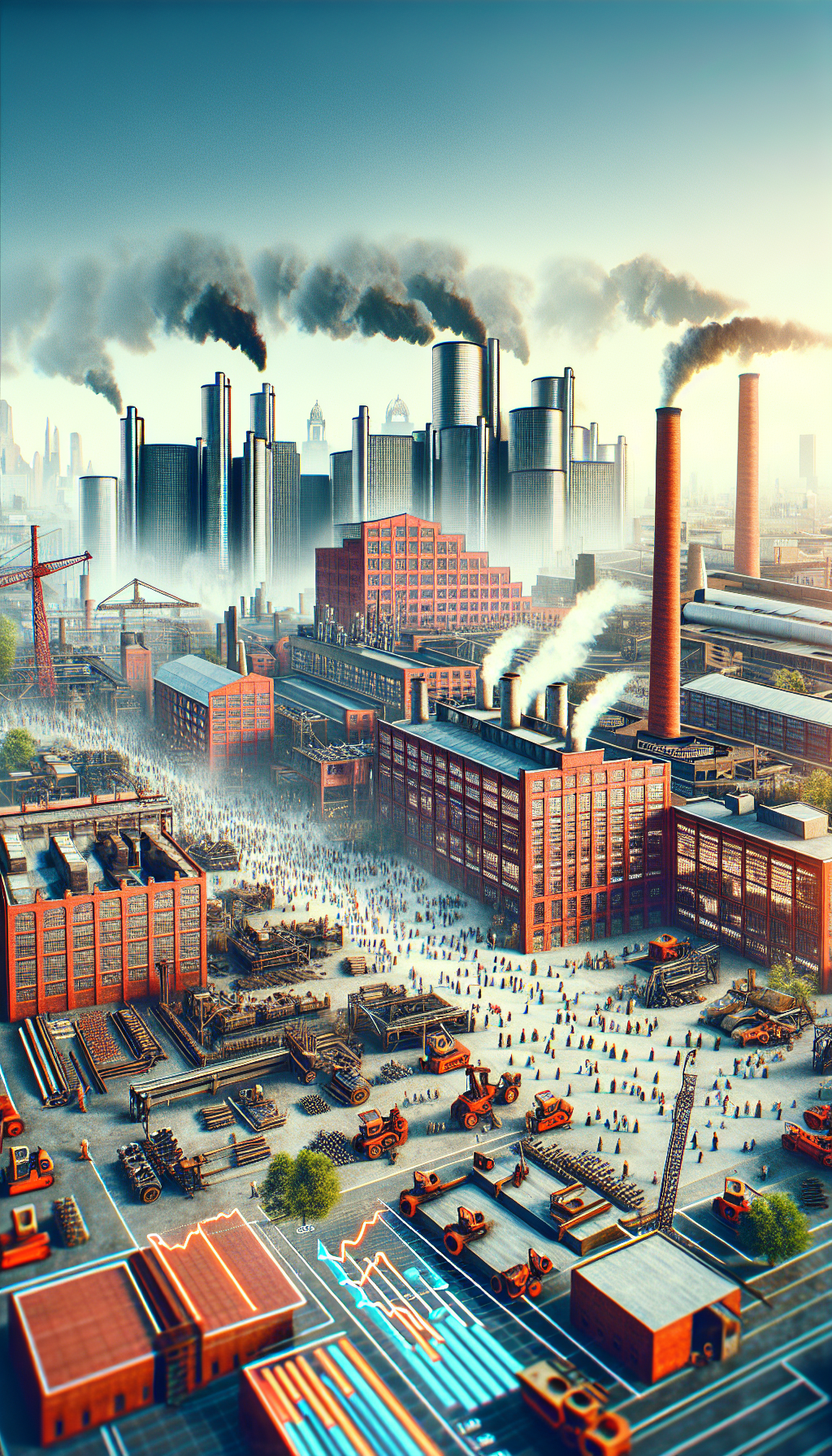The revitalization of Detroit’s manufacturing sector has become a focal point in the narrative of the city’s economic resurgence. Once the heart of American automobile production, Detroit faced significant decline due to industrial downturns, population exodus, and economic hardships. However, recent trends indicate that the city is not only bouncing back, but it is also positioning itself as a dynamic hub for modern manufacturing.
Historical Context
Detroit’s manufacturing sector thrived during the early to mid-20th century, largely driven by the automotive industry. The “Big Three” automakers—General Motors, Ford, and Chrysler—spurred job creation and economic growth. Yet, as globalization escalated and production moved overseas, many manufacturing jobs vanished. The collapse of the automotive industry in 2008, exacerbated by the financial crisis, led to a significant downturn, with the city filing for bankruptcy in 2013.
Government Initiatives and Support
In recent years, government initiatives have played an essential role in revitalizing Detroit’s manufacturing sector. The state of Michigan has actively promoted business incentives, tax breaks, and grants aimed at attracting investment. The development of the Michigan Economic Development Corporation (MEDC) has been pivotal. This organization focuses on strengthening the economic environment through strategic funding and resources for local businesses, encouraging innovation, and fostering entrepreneurship.
Investment in Technology and Skilled Workforce
Modern manufacturing increasingly relies on technology and automation. Detroit has embraced this shift, investing heavily in smart manufacturing technologies, including robotics, artificial intelligence, and the Internet of Things (IoT). Companies are now leveraging these advancements to optimize production processes, reduce waste, and enhance product quality.
In tandem with technological investment, there has been a concerted effort to develop a skilled workforce. Collaborations between local community colleges, universities, and manufacturers create training programs tailored to the needs of the industry. Programs focusing on advanced manufacturing and technology equip workers with relevant skills, ensuring they meet the demands of today’s job market.
Emerging Sectors and Diversification
While traditional industries like automotive manufacturing remain critical to Detroit’s economic recovery, there has been a remarkable diversification within the manufacturing sector. New players are emerging in industries such as aerospace, defense, biotechnology, and renewable energy. These sectors not only broaden the manufacturing base but also attract a wider range of investments, thereby contributing to more sustainable economic growth.
For example, Detroit has seen the rise of electric vehicle (EV) manufacturers, spurred by a growing demand for sustainable transportation solutions. Companies like Rivian and Tesla are setting up operations in the region, which opens new job opportunities and reinforces Detroit’s role in a greener future.
Urban Revitalization and Infrastructure Growth
The revitalization of Detroit’s manufacturing sector aligns with broader urban development initiatives. The renewal of neighborhoods and infrastructure improvements play an integral role in attracting businesses and residents alike. The city has invested significantly in upgrading public transportation, enhancing road conditions, and improving utilities.
The establishment of technology parks and business incubators, such as the Detroit Innovation District, fosters collaboration between startups and established manufacturers. This not only creates a vibrant ecosystem but also encourages innovation and technological advancements, further streamlining manufacturing processes.
Community Engagement and Local Impact
The resurgence of the manufacturing sector also impacts local communities positively. As new companies emerge and existing ones expand, there is a growing demand for local suppliers and partnerships. This stimulates the economy at multiple levels, fostering a culture of collaboration and innovation among businesses.
Moreover, local communities benefit from job creation and increased economic activity. As companies invest in the region, they often engage in community development initiatives, contributing to local schools, parks, and infrastructure. Therefore, the knitting of manufacturing growth with community welfare creates a robust socio-economic fabric.
Sustainability and Environmental Considerations
Today’s manufacturing landscape necessitates a focus on sustainability. Detroit’s revival incorporates environmentally friendly practices. Adopting green technologies, reducing emissions, and optimizing energy use are priorities for many of the region’s manufacturers. This commitment to sustainability not only addresses environmental concerns but also resonates with an evolving consumer base that favors eco-friendly products and practices.
This shift can also enhance competitiveness, as government regulations increasingly favor sustainable practices in manufacturing. Companies that proactively adopt these measures are more likely to thrive in the long term, positioning Detroit as a progressive leader in manufacturing.
The Role of Automation and Robotics
Automation and robotics are transforming the manufacturing landscape in Detroit. As companies invest in these technologies, they experience increased efficiency, lower production costs, and improved precision. This trend is paramount as manufacturers face global competition and the demand for higher quality products.
Investments in robotics also contribute to workforce development. While there is concern about job displacement due to automation, the reality is that new roles are evolving that require advanced technical skills. Manufacturers seek technicians, engineers, and data analysts to manage and optimize automated systems.
Conclusion of the Manufacturing Renaissance
The revitalization of Detroit’s manufacturing sector is not merely an isolated phenomenon; it is part of a larger resurgence rooted in innovation, community engagement, and a commitment to sustainability. As companies pivot toward advanced manufacturing technologies and diversify, the potential for economic growth becomes ever more pronounced.
This process not only revitalizes the oldest manufacturing sector in the United States but also establishes Detroit as a robust competitor in the global market. The city stands poised for a sustainable and inclusive economic growth trajectory, showcasing what can be achieved when community partnerships, technological investment, and government support align in service of a common goal.

